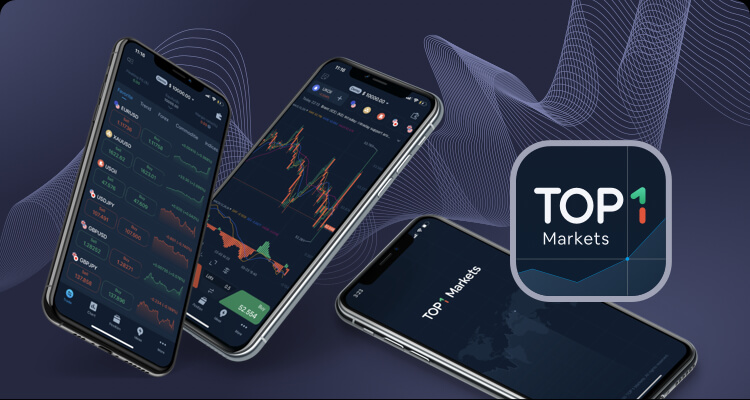Stock Index Investing

Indices (also known as stock indexes) represent the value of a group of assets or stocks listed on a particular exchange.
Market indexes are used as important benchmarks in measuring various assets' returns, such as the stock market.
Since indices are just a number, they can't be traded directly. The investors need a financial instrument, like CFDs, for that. Indices trading is the most popular form of CFD trading.
Index investing is a passive investment strategy that seeks to replicate the returns of a benchmark index.
The amount of money made or lost on trade depends on the market move and your position's size.
At TOP 1 Markets, we offer CFDs on most major global indices, including Germany 30, Australia 200 DJ30, SP500, TECH100, UK100, and China A50, etc.
At TOPONE Markets, you can start trading indices with a starting capital of just $50.
The most-traded indices include the Dow Jones Industrial Average, TECH100, SP500, FTSE 100, CAC 40, and Dax 30, etc.
Different indices (or indexes) have their criteria for determining constituent stocks.
1. Dow Jones Industrial Average (DJ30)
It includes 30 of the most influential companies in the U.S. and is price-weighted, including Apple, Microsoft, Exxon Mobil, Coca-Cola, McDonald's, Pfizer, Goldman Sachs, JPMorgan Chase, etc.
The companies with larger share prices have a greater impact on their value.
2. S&P 500 (SPX500)
The S&P 500 index is float-weighted. This means the constituent stocks impact the overall value of the index based on their market capitalisation and float (i.e. the percentage of the company that is publicly traded).
3. NASDAQ (TECH100)
The Nasdaq 100 Index is a basket of the 100 largest, most actively traded U.S. companies listed on the Nasdaq stock exchange. The index includes companies from various industries except for the financial industry, like commercial and investment banks. These non-financial sectors include retail, biotechnology, industrial, technology, health care, and others.
At present, Apple has the most weight and other well-known companies such as Microsoft, Google, Cisco, and Intel.
4. DAX (GER30)
The DAX (Deutscher Aktienindex or German stock index) is a blue-chip stock market index consisting of the 30 major German companies trading on the Frankfurt Stock Exchange, including well-known companies such as BMW, Daimler, Adidas, Bayer, and Siemens, etc.
5. FTSE 100 (UK100)
The Financial Times Stock Exchange 100 Index, also called the FTSE 100 Index, FTSE 100 or FTSE, is a share index of the 100 companies listed on the London Stock Exchange with the highest market capitalisation, including Standard Chartered Bank, HSBC, Barclays Bank, Rolls-Royce, etc.
It is seen as a gauge of prosperity for businesses regulated by U.K. company law.
It is one of the most popular financial products in the market.
Index investing has become increasingly popular over the years, with this passive strategy outperforming more active investment over time.
Trading indices allows traders to go both long (buy) and short (sell), making it an ideal hedging instrument.
For example, go long on TESLA because traders expect an increase in the TESLA's share price and, at the same time, go short on the TECH100 to protect your investment from an adverse market movement.
Indexing seeks to match the risk and return of the overall market, on the theory that the market will outperform any stock picker over the long-term.

계정을 개설해야 할 6가지 이유
다국어 서비스로 된 365일 전문적인 온라인 지원
매우 신속하고 편리한 자금 출금 프로세스
데모 계정용 무제한 가상 자금
전 세계에서 인정하는
실시간 시세 알림
전문적인 시장분석

계정을 개설해야 할 6가지 이유
다국어 서비스로 된 365일 전문적인 온라인 지원
매우 신속하고 편리한 자금 출금 프로세스
데모 계정용 무제한 가상 자금
전 세계에서 인정하는
실시간 시세 알림
전문적인 시장분석
계정을 개설해야 할 6가지 이유
다국어 서비스로 된 365일 전문적인 온라인 지원
매우 신속하고 편리한 자금 출금 프로세스
데모 계정용 무제한 가상 자금
전 세계에서 인정하는
실시간 시세 알림
전문적인 시장분석







